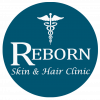PCOS Hair Loss - Unveiling the Best Treatments to Restore Your Locks
Are you suffering from Polycystic Ovary Syndrome (PCOS) and losing hair due to it? Well, apart from hair loss, PCOS can cause various other health issues. However, let’s focus on hair loss, understanding how and why PCOS causes hair loss, and treatment for PCOS hair loss in this post.
What is PCOS?
PCOS refers to problems with hormones during the person’s reproductive years. Those suffering from PCOS may have irregular periods or prolonged ones. Besides, they may have excessive androgen in their body. PCOS develops several tiny sacs of fluid (cysts) along the outer edge of the ovary. These cysts contain immature eggs called follicles that fail to regularly release eggs.
PCOS features many symptoms. These vary from individual to individual. However, some common ones include missed periods, light periods, or irregular ones, excess body hair, ovaries with large or several cysts, acne or oily skin, male-pattern baldness or hair thinning, and infertility.
Does PCOS Cause Hair Loss?
Yes. It results from the excess androgenic hormones that can also lead to acne, hair thinning, and easily breakable lackluster hair. In medical terms, it is called female pattern baldness. Hormonal imbalance can result in androgenic alopecia or male pattern baldness with the following.
- Hair falls out primarily in the frontal and parietal (side) of the scalp.
- Hair thins excessively in the parting region.
- The Hairline begins receding above the temples.
Hair loss is common and everyone suffers from it to a certain extent. However, PCOS causes more hair loss than normal. Hence, they may see more hair on furniture, on clothes, or on the pillow than normal. Some people may also notice hair loss in clumps while bathing.
One of the first things that doctors do to resolve the problem is to balance the hormone levels. One of the recommendations, in this case, is hormonal therapy. A few other factors that can lead to hair loss include chronic infections or diseases, exposure to extreme temperatures, anemia, stress, lack of essential nutrients, or the side effects of certain medications.
How Does PCOS Cause Hair Loss?
While it is evident that PCOS causes hair loss. Let’s understand it better to manage it effectively and reverse it. The most crucial causative factors include androgen imbalance, insulin resistance, and inflammation.
PCOS involves heightened androgen (DHT) levels that shrink hair follicles and shorten hair growth cycles. It leads to thinner and more brittle hair. On the other hand, high insulin levels related to insulin resistance can foster androgen production and trigger inflammation, affecting hair follicles. Inflammation intervenes in the hair growth cycle, disrupting it. It forces more hair into the resting phase (telogen) and increases the amount of hair thinning and shedding.
Is PCOS Hair Loss Reversible?
The good thing is yes, you can reverse PCOS hair loss if you treat hormonal imbalance. Doctors may suggest options like balancing hormonal levels or reviving hair follicles based on your body’s needs. However, you should complement the treatment with a healthy lifestyle, a balanced diet, and regular exercise to enhance overall fitness levels and mitigate the impact of PCOS.
Nevertheless, some alternatives to treating PCOS hair loss include the following.
- Medications
You may be given medicines that manage hormonal imbalances and block the effects of androgen on hair follicles to promote hair growth.
- Nutritional Supplements
The doctors may prescribe iron and biotin-rich supplements to improve hair health.
- Balanced Diet
Based on your body’s needs, they may prescribe consuming foods rich in zinc, iron, magnesium (mushrooms, legumes, eggs, and nuts), vitamin A (carrots), vitamin B (cheese, bananas, tomatoes, etc.), vitamin E, and F.
Additionally, diagnosing deficiencies of selenium, silicon, zinc, and choline and providing the body with these nutrients (based on the test result, if required and in the right quantities) can also help treat PCOS hair loss steadily.
Apart from the above, engaging in regular exercises and adhering to the best hair care practices can complement the overall treatment and improve hair health.
You can treat PCOS hair loss through a few clinical techniques as well. They include the following.
Low-Level Laser Therapy: The treatment uses low-level lasers or light-emitting diodes (LEDs) to expose the scalp to non-invasive and low-energy light. It helps improve blood flow to the scalp, lower inflammation levels, and can help stimulate hair follicles.
Follicular Unit Extraction (FUE): This is a popular hair transplantation technique. During the procedure, the expert extracts individual hair follicles from a donor region and transplants them into the areas with no or thinning hair. It can help restore hair in PCOS-affected areas.
PRP Therapy: Platelet-rich plasma (PRP) involves extracting a small amount of blood, separating the plasma in a centrifuge, and injecting it into the scalp. The treatment helps stimulate hair follicles, improve blood circulation, and foster hair regrowth.
A couple of others also include micro-needling and Sapphire FUE.
Need more specific information and treatment for PCOS hair loss? Visit us at our clinics in Pune (Baner, Koregaon Park, and Karve Road) or Jaipur.

Your journey to flawless skin and healthy hair starts here. With expert dermatologists, cutting-edge treatments, and personalized care, we ensure real results. Contact us, book your consultation, and experience confidence like never before!
Visit Us
📌BANJARA HILLS
📌SANTA CRUZ